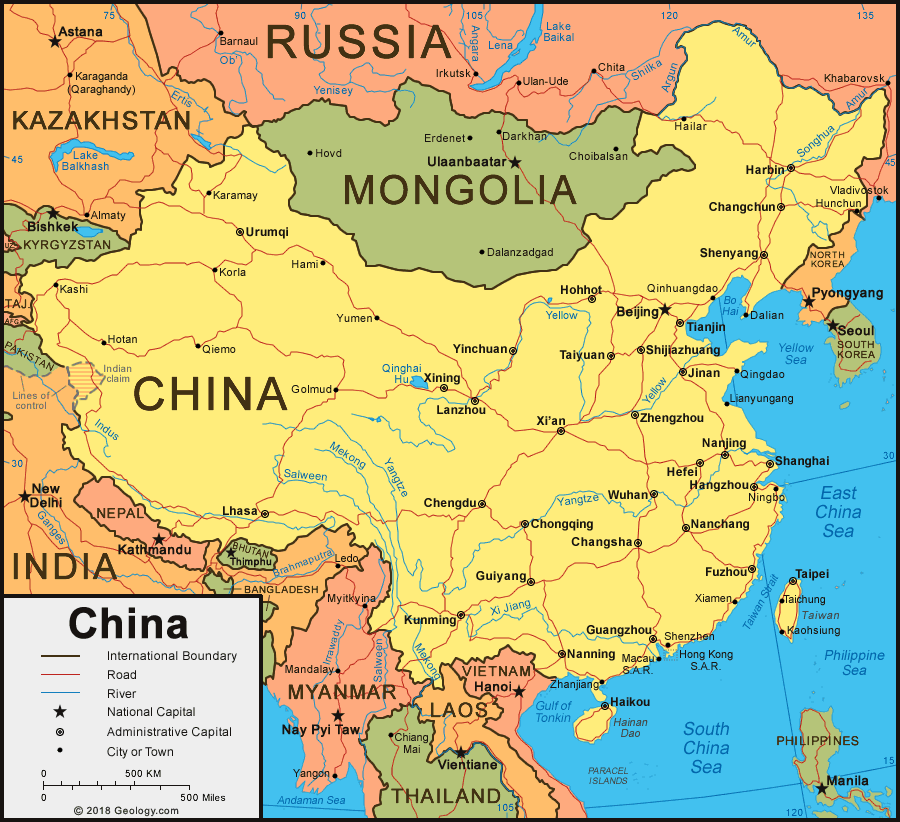On January 21, China reported that its GDP grew 6.6% in 2018. Although 6.6% sounds pretty strong, and most other countries would love to grow 6.6%, it was China’s lowest growth rate since 1990. Some experts are speculating that the slowdown is part of an overall worldwide slowdown, and China, as an exporting powerhouse, is bound to slow down if the rest of the world is slowing down. Other experts believe the causes of China’s slowdown are more fundamental and endemic to China itself. These other experts believe we are just now seeing the ramification of many years of China’s one-child policy and that aging demographics will doom China to slower growth forever, or at least until they reverse the one-child policy. I am a believer in causation due to big demographics, but that doesn’t matter. What matters is, as (probably) an American, should you care about China’s issues, and why?

As a Consumer
As a consumer, particularly one who shops at Wal-Mart and its ilk, China’s slowdown probably won’t matter to you. Just because China’s economy is slowing down doesn’t mean China won’t continue to be the manufacturer and/or producer of many of the goods you see at Wal-Mart. In fact, it could be just the opposite. China may be motivated to produce and export even more in order to re-boot its growth. Higher tariffs play a role in this: higher tariffs on goods exported from China means US consumers pay more for those goods, which likely means they won’t buy as many of them, which means the Chinese economy gets hurt, or at least doesn’t grow as much. Tariffs are part of the cause of China’s slowdown, not the result of China’s slowdown. Tariffs are temporary, in that they can be reversed either through a new trade agreement or a new administration that chooses not to enforce tariffs. My point is, as a consumer of goods manufactured in China, which it is hard not to be, you won’t see much of an effect caused by a slowdown in China, and effects you do see that result from tariffs are temporary.
As an Investor
The story is different as an investor. The stock market will suffer if it is perceived that China’s slowdown will continue and slow down even more. Many companies, particularly large-cap multinational corporations such as those that make up the S&P 500 and NASDAQ 100 Indexes, are highly dependent on China as a source of manufacturing and as a growing market for their goods. Corporate profits will suffer as the Chinese economy slows down. One way China has in the past dealt with economic slowdown is through currency devaluation. Stock market corrections during 3Q 2015 (S&P 500 down about 14%) and 1Q 2016 (S&P 500 down about 12%) were both due to an actual or threatened devaluation of the Chinese Yuan by the Chinese government. Devaluation could easily happen again, and if you are invested in the stock market in any capacity there is no way to avoid suffering as a result. China has made a concerted effort to bolster its own currency since 1Q 2016 but it may need to devalue again if lower growth threatens its economy.
IMO
Tariffs and trade negotiations get the headlines, but I believe the performance of the Chinese economy apart from tariffs is a larger issue of concern to investors. This is another reason why we are likely to see higher levels of volatility ahead. Consumers: You can just keep buying and you will probably have just as much if not more selection to choose from without major threat of inflation in the long run. The slowdown in the Chinese economy will be important to some people but not to everyone here in the US.
